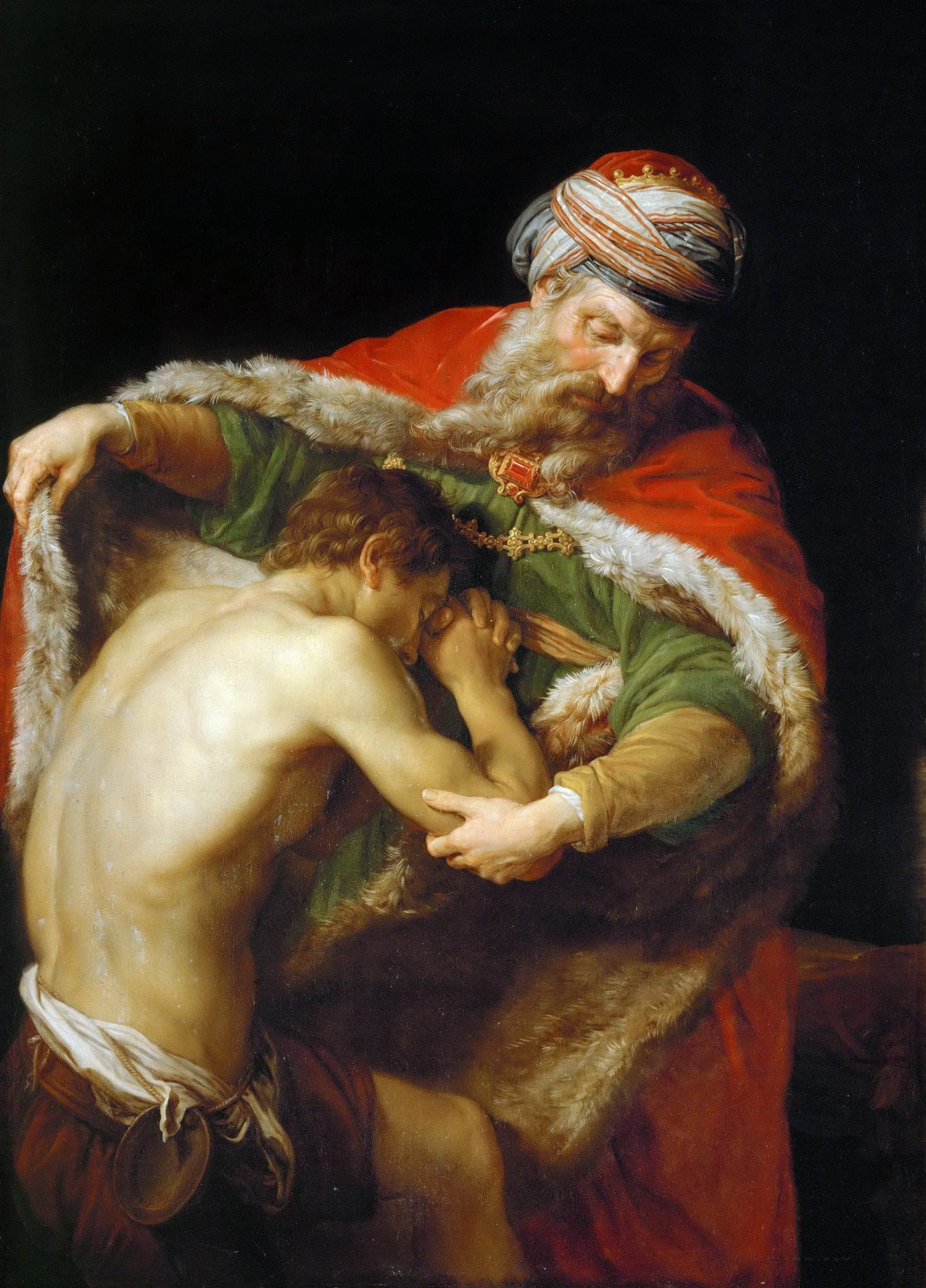
[Pearls Episode 136: Preparing for Sunday.]
As we continue with the Prodigal Son, the title for today’s message is a bit tongue-in-cheek. Scripture tells us everything we need to know about forgiveness and mercy, but not all of that is in the parable of the Prodigal Son. That parable is just a small snapshot in time, and so it invites us to reflect more deeply on forgiveness and mercy, starting with some of the things that are not included in the parable.
For example, what did the Prodigal Son do after we take leave of him? Recall at that time he was wearing a ring on his finger, a fine robe, sandals and about to dig into a plate of succulent barbeque. Life was good. What about the next day, or week, or month? The robe and ring indicate the Father was going to restore the Prodigal’s inheritance (as our heavenly destiny is restored), but the Prodigal would still have to live under the rule of the father, and perhaps even answer to the older brother – would he sustain his penitent spirit and accept that fate – or would he try, once again, to renegotiate his situation?
The Big Question is whether the Prodigal would step forward into the gift of forgiveness (the gift of God’s grace) – practicing true repentance and growing in forgiveness and mercy himself. This is related to the parable of the woman who was forgiven much and anointed Jesus’ feet – and Jesus teaches that those who are forgiven more, will love more. Did the Prodigal follow that path?
What if he did not? What then of the father? Would he then have to practice “tough love.” What happens when you forgive someone, but they aren’t willing to accept the worldly consequences of their poor choices?
Forgiveness is no small matter. Of course, everything hinges on forgiveness. Our redemption hinged on God’s forgiveness of us. And God tells us that to grab hold of the salvation He won for us, we need to forgive others “70 times 7 times”. The importance of becoming experts at forgiveness is unanimous testimony of the Saints. Mother Teresa sums it up neatly, “If we really want to love we must learn how to forgive.”
Mother Teresa’s wisdom shows where forgiveness leads – to love. Forgiveness is just the starting point. The Prodigal Son’s father (God…) is showing us where forgiveness leads – to mercy. Mercy goes beyond forgiveness. From the Catechism, mercy is “loving kindness, compassion or forbearance shown to one who offends.” Mercy is the fulness of love shown to someone who offends us. The merciful person is not so much saddened at being offended as they are concerned by what the offence has done to the other person’s soul. The merciful person wants the highest and best things for the person who offends them.
Read the life of any of the Saints and you are likely to find that somewhere along the way they went to extreme lengths to help someone who offended them.
With the beatitudes, Jesus teaches us, “blessed are the merciful, for they shall receive mercy.” So, we start with forgiveness, which leads to seeing the world through eyes of mercy, because we recognize the wounds that we all bear, and the great mercy God has shown us. You know what happens then? Jesus tells us – our hearts become purified – which is the next beatitude, “blessed are the pure of heart.” And what is their reward? “… for they shall see God.”
The path of seeing Christ in others, and ourself, passes through forgiveness and then mercy.
On Monday we’ll look a little deeper a becoming experts in forgiveness, through Christ.
Blessings on your journey with Christ –
Steve and Karen Smith – Interior Life
